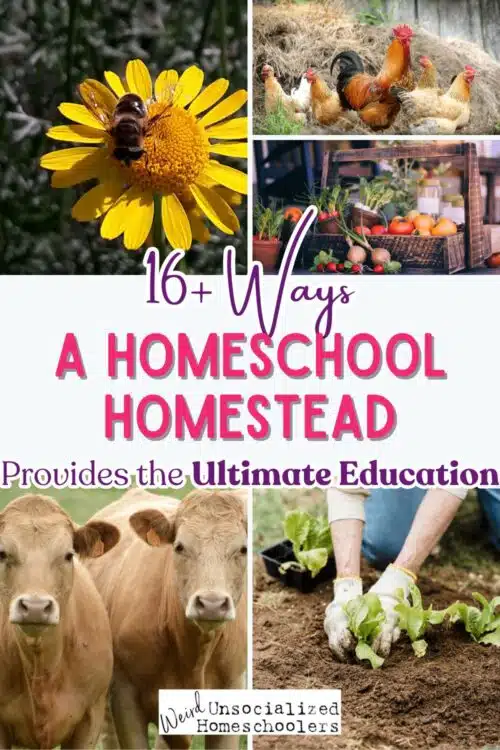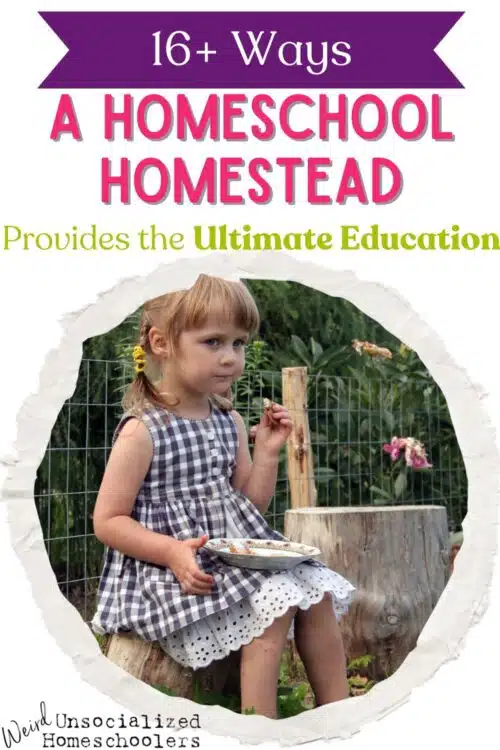16+ Ways a Homeschool Homestead Provides the Ultimate Education
A while back, I noticed a sign near the cash register while waiting to be seated. It said that the restaurant had gotten a new payment system and it could take up to 15 seconds to process a payment. Then, it thanked patrons for their patience.
Fifteen seconds. How much patience does it take to endure fifteen seconds of waiting?
But that’s the world we live in. And in this fast-paced, modern world, the idea of something as slow-paced and labor-intensive as homesteading may seem like a nostalgic throwback to a bygone era.
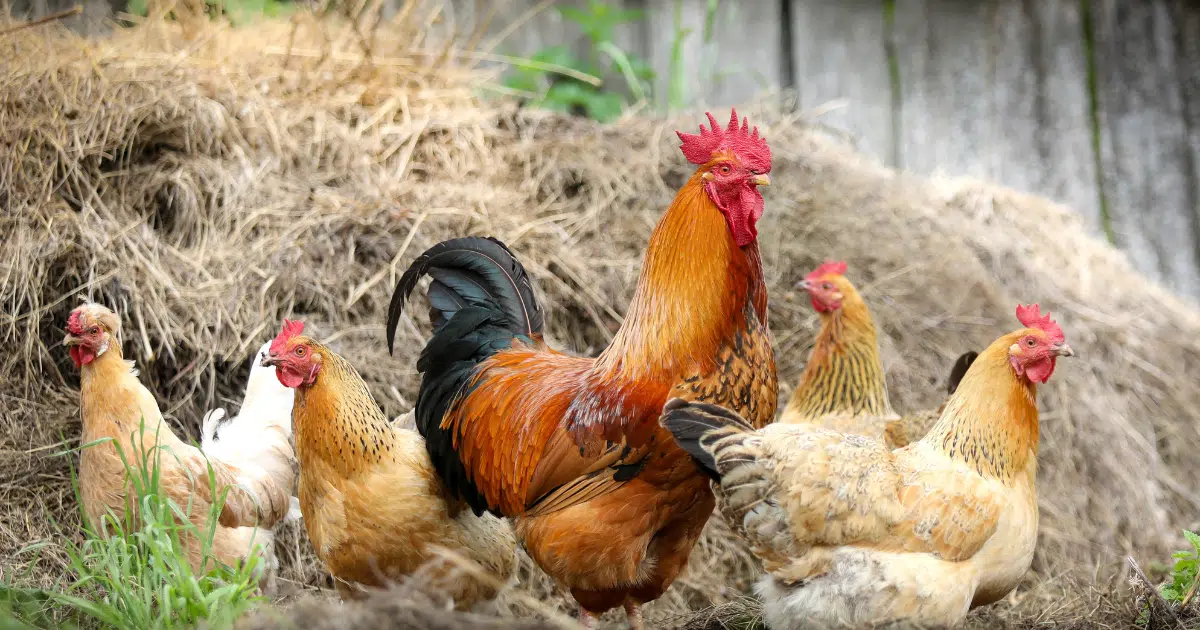
However, for homeschooling families, homesteading and the self-sufficiency it allows provide the perfect backdrop for a unique and enriching educational experience that goes beyond textbooks and classrooms.
Learning Naturally: The Homeschool Homestead
There are so many ways that a homeschool homestead and a lifestyle of self-sufficiency can serve as a fantastic homeschool classroom for kids. It’s a lifestyle that fosters holistic learning experiences that extend far beyond academic knowledge.
Homesteading: The Ideal Nature Study
One of the primary benefits of incorporating homesteading into homeschooling is the opportunity for children to connect with nature. Homesteading encourages kids to step outside, get their hands dirty, and engage with the environment in a way that textbooks simply cannot replicate. Whether it’s planting seeds, tending to animals, or observing the changing seasons, children gain a profound appreciation for the natural world around them.
Hands-On Learning with Gardening
Gardening is a cornerstone of homesteading, and it provides an ideal platform for hands-on learning. Children can actively participate in planning, planting, and maintaining the family’s garden. This process not only teaches them about plant life cycles, soil health, and photosynthesis but also instills a sense of responsibility as they witness the direct impact of their efforts on the garden’s well-being and how the garden provides for their family.
A side benefit of getting kids involved in gardening is that they are often less picky eaters, eager to eat what they have grown themselves!
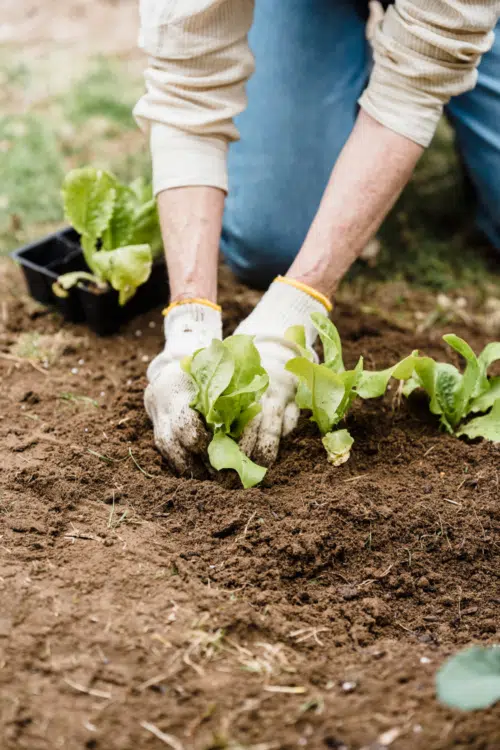
Animal Husbandry and Responsibility
Homesteading often involves raising animals, whether it’s chickens for eggs, goats for milk, or cows for meat. Caring for animals teaches children about responsibility, empathy, and the interconnectedness of all living beings. Additionally, it provides practical lessons in biology, nutrition, and the importance of ethical treatment of animals.
I have a friend whose family operates a small farm raising cows for milk and meat, sheep for wool, and chickens for eggs and meat. The whole family gets involved with everything from milking the cows to gathering the eggs to processing the chickens.
I love that my friend is respectful of her more sensitive children while still enlisting their help where it’s needed. For example, chicken processing is an all-day (at least!) event. Some of her kids enjoy helping with every aspect so she gladly puts them to work. The kids who are bothered by the actual processing help in other ways, such as preparing meals or providing drinks for those who are doing the more hands-on work.
Practical Life Skills
Homesteading provides a comprehensive education that goes beyond theoretical knowledge and equips children with valuable practical life skills taught not as an afterthought but as a vital part of contributing to running the home. These skills are not only essential for self-sufficiency but also contribute to a well-rounded, capable, and confident individual.
Cooking and Nutrition
Growing your own food often spurs in kids an interest in cooking that food. Homesteading homeschoolers can learn the art of meal preparation using fresh, homegrown ingredients. Salsa that doesn’t come in a jar? Fresh, roasted corn straight out of your garden? Yum!
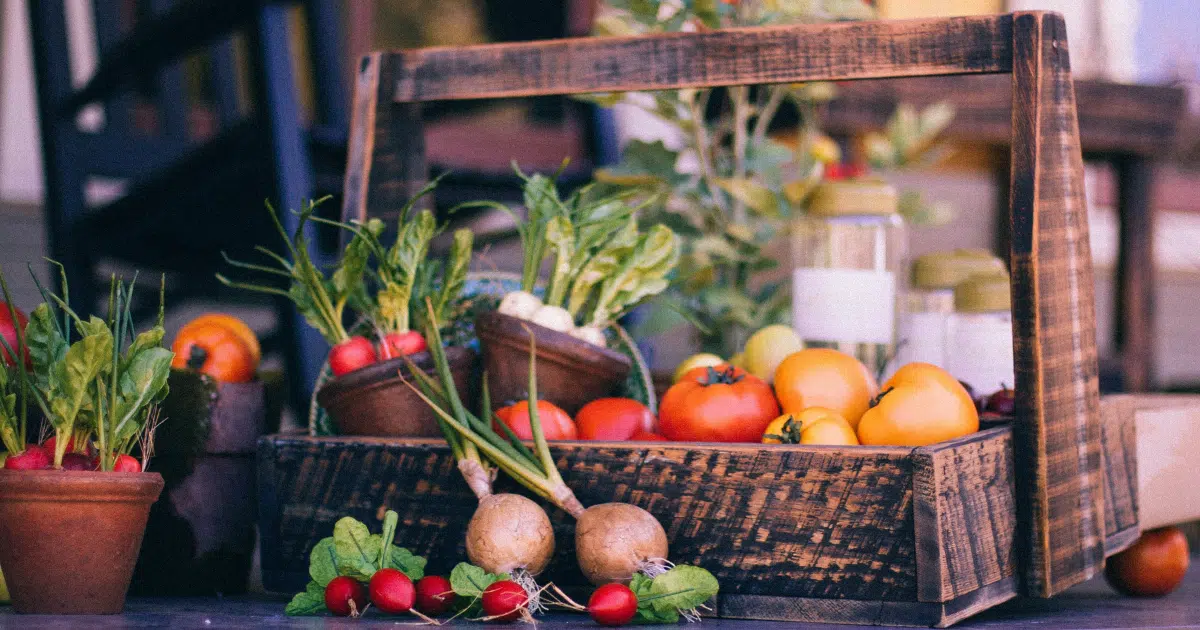
My husband always claimed he didn’t like green beans – until we steamed fresh ones. So different than opening a can!
My friend with the farm got really interested in making her own artisan cheeses. And, so did her teenage daughter. It was such an incredible learning experience for both of them. They traveled together to learn the art from others willing to share their skills. So, not only did they get to experience other parts of the country, but they learned to make delicious fresh cheese all the way from milking the cow to the finished product.
This kind of hands-on experience not only teaches kids culinary skills that they likely wouldn’t learn anywhere else, but it also instills an understanding of nutrition and the connection between food and overall well-being.
Carpentry and DIY Projects
Many homesteading activities require basic carpentry and DIY skills. Building a chicken coop (or a moving one on wheels like my friends did), repairing a fence (which the cheese-making teenager could do as well as any adult), or constructing raised beds for the garden are all tasks that involve problem-solving and practical application of mathematical concepts.
Homeschoolers engaged in homesteading develop a natural inclination for resourcefulness and creativity in solving real-world problems through these activities that allow them to put book knowledge into practical use.
Financial Literacy
Operating a successful homestead requires careful management of both finances and resources. Homesteading provides homeschooled kids with a unique opportunity to learn about the costs associated with maintaining a homestead, the value of hard work, and the importance of making sustainable choices. These lessons contribute to the development of financial literacy—a skill often overlooked in traditional classroom settings.
I love going to our local farmer’s market and seeing kids with their booths set up selling the foods they’ve grown or the products they’ve produced. And, it’s not a case of adults humoring them. These kids have actually put in the work themselves and are confidently vending their wares.
Cultivating Independence and Responsibility
Homesteading fosters a sense of independence and responsibility in children from a young age. As they actively contribute to the functioning of the homestead, they develop a strong work ethic and a sense of ownership over their tasks.
Time Management and Planning
Homesteading activities, such as planting and harvesting crops or caring for animals, follow natural cycles. Homeschooling within this context teaches children the importance of time management and planning. They learn to anticipate tasks, set priorities, and adapt to both the daily and seasonal rhythms of a homestead.
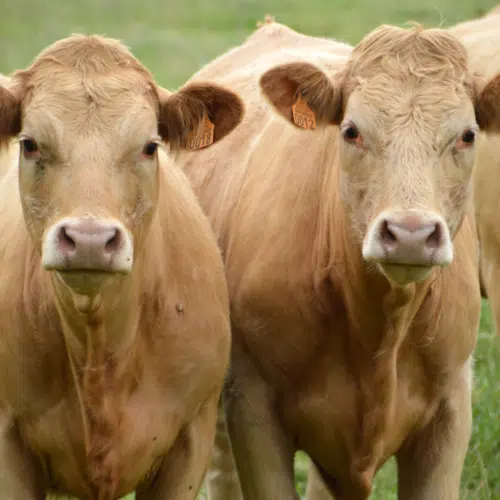
Cows don’t care how cold or rainy it is, how much mud or snow you have to trek through, or the fact that you’d like to hit the snooze button a few more times. When it’s milking time, it’s milking time. Every day. Every season.
Problem-solving and Critical Thinking
Homesteading is full of challenges that require creative thinking skills that no worksheet can match. Whether it’s devising a solution to keep the deer and rabbits out of the garden, troubleshooting issues with a water supply, or finding the pigs that broke the fence (again!), kids learn to think critically and apply their knowledge in practical ways. These true-life problem-solving skills extend beyond the homestead into all aspects of their lives.
Emotional Resilience
Not every homesteading endeavor is guaranteed success, and this provides valuable lessons in resilience. Sometimes, the baby lamb that you brought in the house and bottle-fed because its mom rejected it doesn’t survive. Sometimes, the weather or pests ruin your garden. And, if you raise animals for meat, processing day can be hard both physically and emotionally (even for the grown-ups).
Kids who live and learn on their family’s homestead discover that setbacks are a natural part of life, and failure is an opportunity for growth. These emotional skills are crucial for navigating the ups and downs of adulthood.
Environmental Awareness and Sustainability
Incorporating homesteading into homeschooling (or is that the other way around??) naturally promotes environmental awareness and a commitment to sustainable living. Children become stewards of the land, develop an understanding of where their food comes from, and discover the impact their choices have on the environment.
Understanding Ecosystems and Biodiversity
Homesteading offers a front-row seat to the intricate web of life. Kids observe the relationships between plants, animals, insects, and microorganisms in their natural environment. They develop a relationship with and respect for the source of their food. This firsthand experience enhances their understanding of ecosystems, biodiversity, and the delicate balance that sustains life on Earth.
Conservation Practices
From composting kitchen scraps to harvesting rainwater, homesteading introduces children to conservation practices that not only improve their skills of self-reliance but also make them better stewards of the land. These sustainable habits become ingrained, shaping their attitudes toward resource consumption and waste management.
Community Connection
Homesteading doesn’t exist in isolation; it is inherently tied to community and interconnectedness. My friends who farm do so primarily for meat. They don’t typically grow a garden, but they do get to know the other local farmers personally and purchase produce and other goods from them. I’ve seen firsthand how a sense of community and connectedness grows from the practice of getting to know your local farmers and knowing where your food comes from.
Homeschoolers engaged in homesteading often develop both a local and global awareness of environmental issues, realizing their role in a larger, interconnected world. This awareness can inspire a sense of responsibility and a desire to contribute positively to the local and global communities. In our area, I’ve seen small businesses, a thriving farmers market, and an engaged community grow through the influence of our local homesteading and farming families.
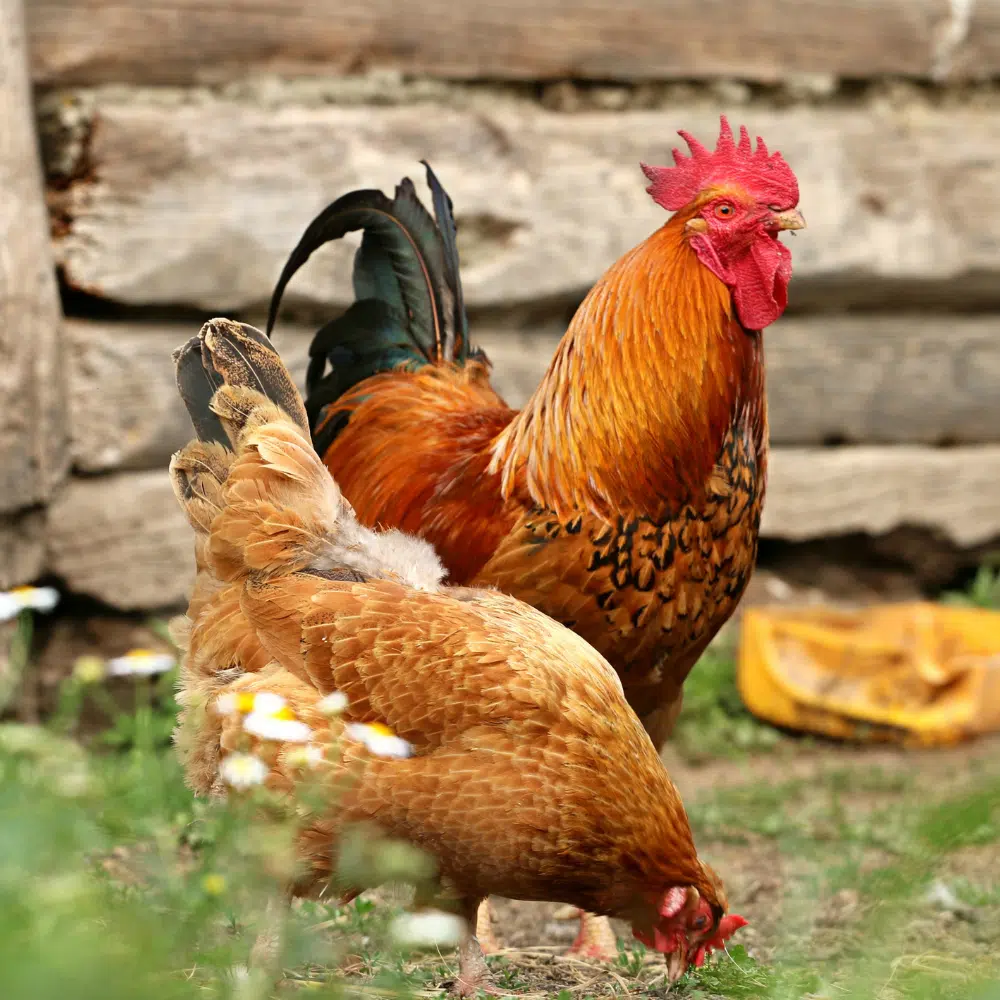
Cultural and Historical Understanding
Homesteading is deeply rooted in our American history and culture. Homeschoolers exploring this lifestyle gain a unique perspective on the traditions, practices, and innovations that have shaped societies throughout time.
Historical Significance of Homesteading
Studying homesteading offers an opportunity to delve into the history of settlement and agriculture. Why read Little House on the Prairie when you can live it, right?
Seriously, though, kids actively engaged in their family’s homestead gain a deep understanding of the historical narratives of pioneers, farmers, and communities who relied on self-sufficiency for survival. This historical context enriches their understanding of the growth and evolution of human societies in ways no textbook can.
Cultural Diversity in Agriculture
Different cultures have diverse approaches to agriculture and self-sufficiency. Homesteading homeschoolers have unique opportunities to explore traditional farming methods, culinary practices, and sustainable living techniques from around the world. This fosters cultural appreciation and a global perspective on self-sufficiency.
Building Character and Values
Beyond academic knowledge, homeschooling within a homesteading framework contributes to the development of strong character and positive values.
Work Ethic
Homesteading is hard work, and homeschoolers living this lifestyle develop a strong work ethic. They understand the value of diligence, perseverance, and the satisfaction that comes from seeing the fruits of their labor. The confidence and character of kids who are a vital part of their family’s livelihood is evident when you meet those responsible for things like rounding up the animals ahead of severe weather, walking the property to repair fencelines, or operating farming equipment with which most adults are inexperienced.
Gratitude and Mindfulness
Cultivating a homestead requires patience and mindfulness. Kids who have experienced the abundance provided by the land develop gratitude for the resources they have. This sense of gratitude extends to an awareness of the interconnectedness between nature and daily life, whether that means something simple like leaving the wildflowers for the pollinators or something more complex like spinning your own yarn from the wool of the sheep you’ve raised.

Community and Collaboration
Homesteading is not just an individual endeavor—it often involves collaboration within a family or community. Homeschoolers learn the importance of teamwork, cooperation, and shared responsibilities. These social skills are invaluable in developing well-rounded individuals.
The Benefits of a Homeschool Homestead
Homeschooling within the framework of homesteading and a self-sufficient lifestyle offers a holistic approach to education, fostering a natural, organic way of learning by doing and experiencing.
In a world characterized by rapid change and looming uncertainty, the need for a comprehensive education that goes beyond textbooks is more apparent than ever. Homeschooling, with its flexibility and personalized approach, offers a unique opportunity to impart essential life skills through homesteading and self-sufficiency education.
By weaving these practices into a homeschooling lifestyle, we not only prepare the next generation for the challenges of adulthood but also cultivate environmentally conscious, resilient, and resourceful individuals capable of shaping a sustainable future.
As we envision the world our children will inherit, the seeds of self-sufficiency planted in the homeschooling environment promise a harvest of empowered and capable individuals ready to embrace the challenges and opportunities of tomorrow.
Kris Bales is a newly-retired homeschool mom and the quirky, Christ-following, painfully honest founder (and former owner) of Weird, Unsocialized Homeschoolers. She has a pretty serious addiction to sweet tea and Words with Friends. Kris and her husband of over 30 years are parents to three amazing homeschool grads. They share their home with three dogs, two cats, a ball python, a bearded dragon, and seven birds.



